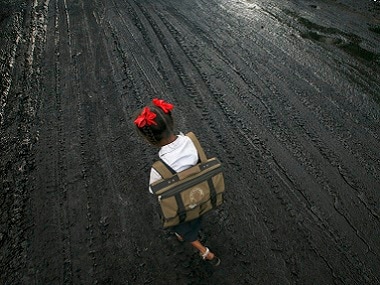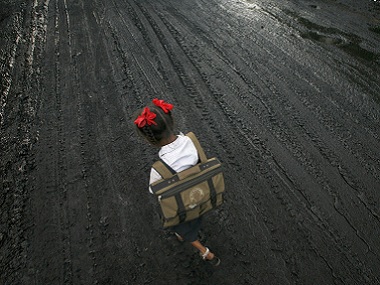The Rajasthan government in a legislation passed last week has introduced the death penalty for rape of girls below 12 years of age. Through this law, the government is attempting to portray itself as taking a tough stand on crimes against women and girls. Ironically, the same state government had, only recently, vociferously supported centuries-old patriarchal ideas of community honour, in which it was considered better for women to kill themselves rather than be captured by an enemy army. The Criminal Laws (Rajasthan Amendment) Bill, 2018, is to an extent rooted in the same concept. By introducing capital punishment for rape of minors, it suggests that victims of the crime suffer a fate similar to death. However, the provision for death penalty completely sidesteps important changes needed to make the justice system sensitive to survivors of sexual assault and to avoid victim shaming. Systemic changes needed For instance, a Human Rights Watch report from December 2017 points out that the standard form used in hospitals in Rajasthan still has a column which seeks information on the status of the hymen, and that doctors continue to practice the two-finger test in rape cases. [caption id=“attachment_4393237” align=“alignleft” width=“380”]  Representational image. Reuters[/caption] The two-finger test attempts to ascertain whether a girl or woman has a sexual history, with the assumption that if she consented to sex at some point earlier, her claim that she was raped is suspect. The Supreme Court in 2013 had held that the two-finger test on a rape survivor violates her right to privacy, and asked the government to provide better medical procedures to confirm sexual assault. In any case, as is well documented , there is no connection between the status of the hymen or the width of the vagina with sexual history, neither can the tests prove whether sexual abuse took place. A social worker who has guided several minor survivors of sexual abuse through legal procedures points out that the criminal justice system often ends up further traumatising them in many ways. “During medical examinations, survivors sometimes have to wait for hours outside the room where the examination is to take place. The room is clearly marked out as such, and thus passers-by identify the girl or woman as having suffered sexual abuse.” She recounts another instance where the examination-in-chief of a child in court was repeatedly delayed as the judge was reluctant to hold an in-camera hearing, as is mandated by the law in such cases. Thus, the child was made to remember and recount her ordeal several times over, which is against the provisions of the Protection of Children from Sexual Offences Act, 2012. “A large number of people continue to associate an incident of sexual assault with stigma for the victim,” the social worker remarks. “They may fear that she may be socially ostracised or that no one would marry her. Additional victimisation by authorities during the investigation of a rape only heightens these fears. Several cases of sexual assault go unreported for this reason.” Perpetrators are known to survivors in most cases Rajasthan’s decision to make a legislative provision for death penalty for rape of minors may also have an effect on reporting of cases to the police. A study conducted in 2007 by the Ministry of Women and Child Development is instructive in this regard. According to this study, in 31 percent of cases where children faced sexual assault, the perpetrators were uncles or neighbours. In 29 percent cases, the perpetrators were friends or classmates, 10 percent were cousins and 9 percent were employers. Thus, in most of the cases, offenders are known to the child’s family. One has to keep in mind that a child below 12 years of age would ordinarily not be able to approach the police on her own and would need her family’s help. In many cases where the offender is known, families may find it difficult to file a complaint with the police given the possibility that he may be sentenced to death. A more recent study conducted by the Centre for Child and the Law, National Law University of India-Bengaluru in five states on the POCSO Act has also shown similar findings. According to it, the percentage of cases where the perpetrator was known to the child was above 70 percent in all the five states surveyed. Swagata Raha, one of the researchers, says, “A high percentage of children in all states turned hostile when the accused was their father, step-father, brother, or otherwise known to them. Therefore, the conviction rate in such cases was also extremely low.”
Raha adds, “Introduction of the death penalty for rape of children will invariably have the effect of silencing victims as they will be burdened with the guilt of sending someone they know well or are related to, to the gallows. Such punishment will also endanger victims as the perpetrator may not want the child to testify in court or disclose the abuse.”
Advocate and child rights activist Maharukh Adenwalla says, “Rather than introduce the death penalty, measures in the POCSO Act intended for the protection of children who have faced sexual assault need to be implemented. Also, preventive measures should be taken so that such incidents do not occur in the first place.” In sum, several child rights experts agree that putting in place the death penalty for rape of minors is not likely to make any contribution towards making children safer. All it will do is to give expression to the instinct to pin the blame for a larger social problem on some individuals.


)

)
)
)
)
)
)
)
)



